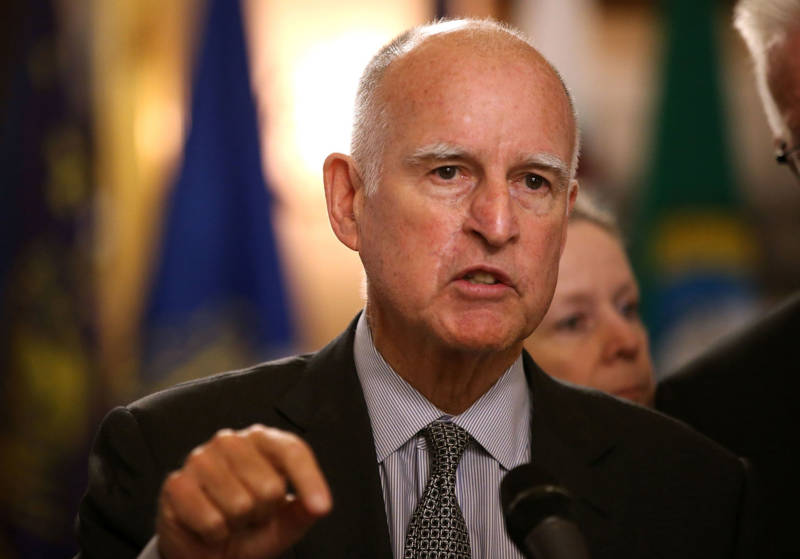In a recent exclusive interview with KQED News, Brown said the ballot measure is also a way to finally get out of the decade-long court oversight.
"That's why we're here," he said, calling Proposition 57 a "rational" way to reduce the prison population while maintaining public safety.
The measure will let inmates earn more “good-time” credits for participating in programs and allow people convicted of crimes considered nonviolent under state law to go before the parole board before serving their entire sentence.
Prosecutors oppose Proposition 57, saying it’s vague and could lead to the release of dangerous criminals. Sacramento District Attorney Anne Marie Schubert said many crimes that are violent are considered nonviolent under state law, and that allowing people to be released early violates a compact the state made with victims.
"You might have a guy that gets sentenced by a judge and after having heard from a defense attorney and a DA and a victim and the defendant, and the judge says, 'Mr. Jones, I sentence you to 25 years. That's based upon the crimes. It's based upon these enhancements. It's based upon your prior convictions for violent crimes. You have 25 years,' " she said. "Now, the victim who had the courage and fortitude to come into a courtroom and testify, say on a domestic violence case -- poof. That's all gone."
She called the measure "very dangerous for California" and "disgraceful for victims of crime."
But Brown argued the ballot measure’s provisions are a natural extension of actions the court has already ordered the state to undertake. Currently, many people in prison under the state's three-strikes law are being paroled early under a process similar to what Proposition 57 proposes.
"Eighty percent of what Proposition 57 does is being done right now under the force of a court order. It is backed up by the United States Supreme Court and which we cannot change unless they say our remedy, in this case Proposition 57, is durable and serves the end of justice," Brown said.
He said the changes must be combined with rehabilitative programs.
"Education, junior college programs, drug treatment, more intensive mental health," he said. "All these things that will take people -- many have been abused as children, neglected, starting narcotics when they are 10 or 12, and are turning their lives around with some professional help."
The governor says inmates will be more inclined to participate in those programs if they have the opportunity to leave prison sooner -- and that society will be safer if they leave prison rehabilitated.
"I think, if anything, this is the greatest step we could take for public safety in California," Brown said.
California Counts is a collaboration with four public media organizations in California to cover the 2016 election. This includes KPCC in Los Angeles,KQED in San Francisco, Capital Public Radio in Sacramento and KPBS in San Diego.

